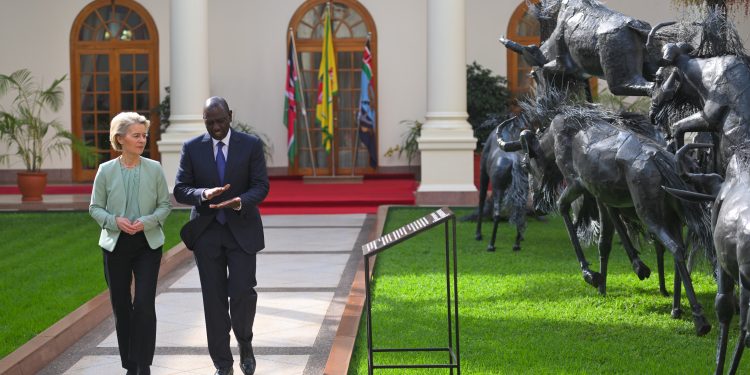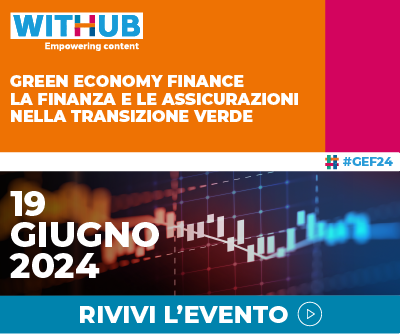Brussels – The EU is chasing Beijing in Africa. The president of the European Commission, Ursula von der Leyen, signed this morning in Nairobi an Economic Partnership Agreement (EPA) with Kenya, which, like most sub-Saharan African countries, retains its strongest trade ties with China.
An agreement to boost bilateral trade in goods, increase investment flows, and contribute to sustainable economic growth. The “most ambitious trade agreement ever signed by the EU with a developing country when it comes to sustainability provisions such as climate and environmental protection, labor rights, and gender equality,” the European Commission said in a note.
At the official ceremony in Nairobi, Kenya’s president, William Ruto, said he expected a “significant strengthening of development cooperation, particularly in the area of trade and investment with a special focus on Kenya’s commitment to the transition to a green economy.” In essence, once the agreement is in force, the European single market will be open – duty-free – to companies from the African country, helping to “create even more opportunities for businesses and exporters.” And on the other hand, it will boost investment from the 27 EU countries in Kenya through a gradual opening of the local market and greater legal certainty. “It is important for us to bring to the Kenyan market the products we need to produce here, but not to compete with local products, so that this is a fair and sustainable agreement,” von der Leyen assured.
 A win-win agreement with a “key partner for the European Union in Africa” that will “further stimulate bilateral trade, support investment, and create good jobs in Kenya,” the President of the EU Commission continued. The EU is Kenya’s top export country and its second-largest trading partner, with €3.3 billion in bilateral trade in 2022 – a 27 percent increase over 2018. The first is Beijing, with over $6 billion in trade recorded in 2021. Unbalanced to say the least: China exported 5.81 billion in goods to Kenya, Nairobi only 202 million.
A win-win agreement with a “key partner for the European Union in Africa” that will “further stimulate bilateral trade, support investment, and create good jobs in Kenya,” the President of the EU Commission continued. The EU is Kenya’s top export country and its second-largest trading partner, with €3.3 billion in bilateral trade in 2022 – a 27 percent increase over 2018. The first is Beijing, with over $6 billion in trade recorded in 2021. Unbalanced to say the least: China exported 5.81 billion in goods to Kenya, Nairobi only 202 million.
But it is not just about numbers and competitiveness. “This agreement will also contribute to sustainable and equitable economic growth” and “includes the strongest social and climate commitments of any EU trade agreement with an African country,” von der Leyen said. Cooperation on environment and climate change adaptation between Brussels and Nairobi is robust: through the Global Gateway, the European Overseas Investment Program, the EU has mobilized nearly €3.5 billion for more than 150 projects under implementation for the green transition in Kenya. In September, moreover, von der Leyen and Ruto signed the Green Hydrogen Strategy. Because “it is one of tomorrow’s energies,” but, more importantly, it will make a valuable contribution to the energy diversification strategy that the EU undertook following Russia’s war against Ukraine.
English version by the Translation Service of Withub





